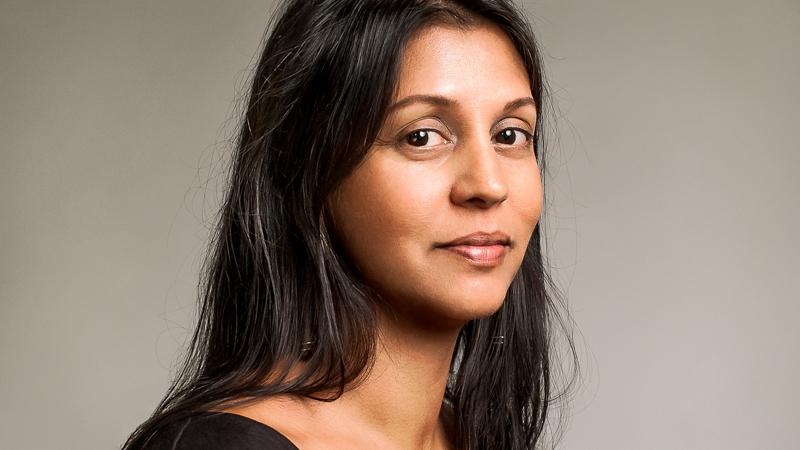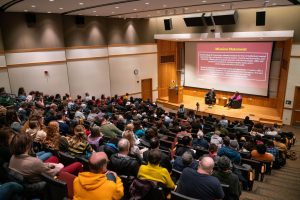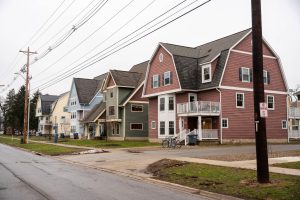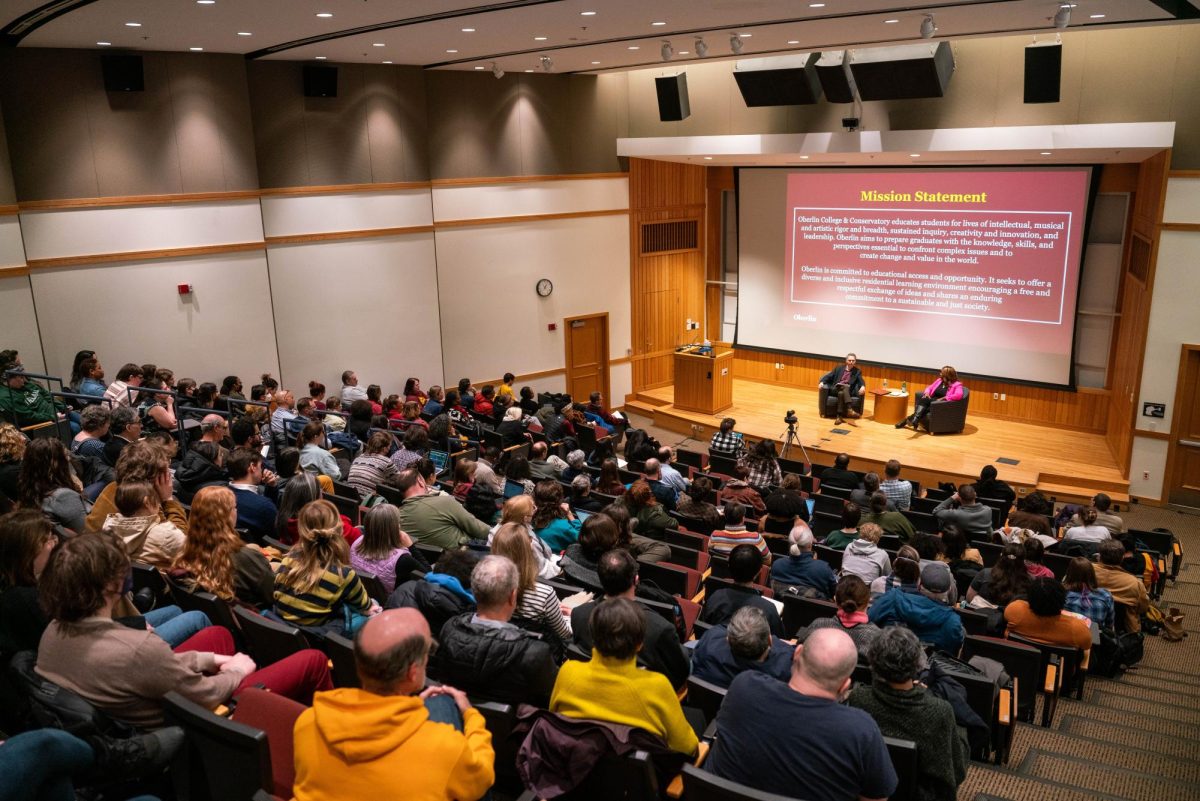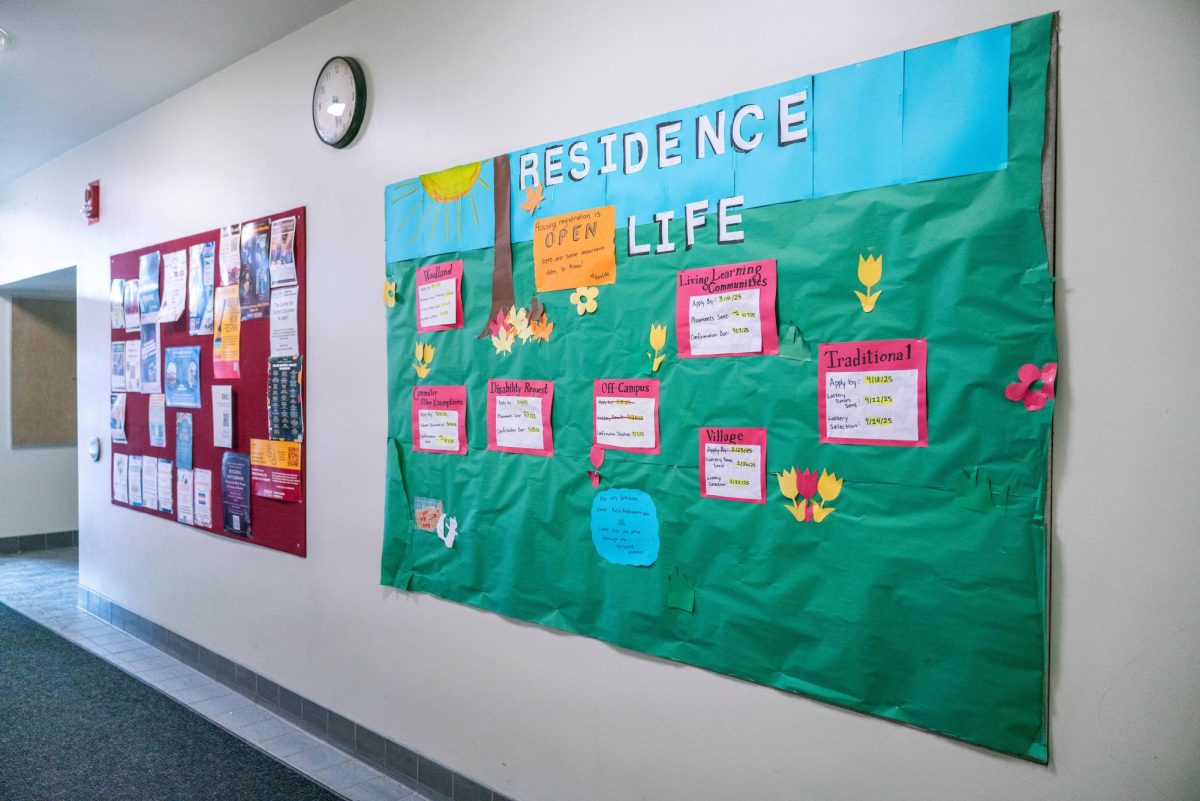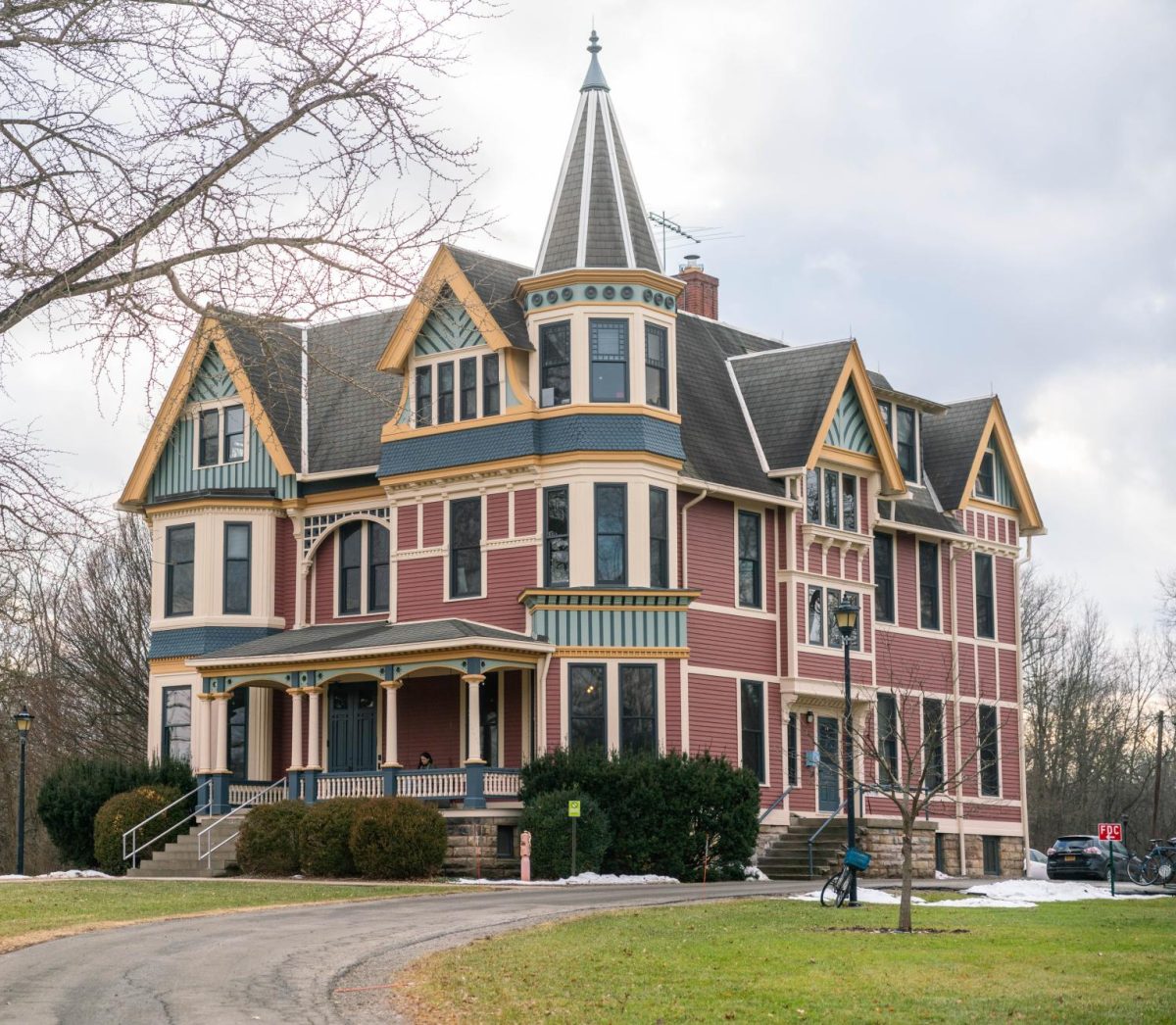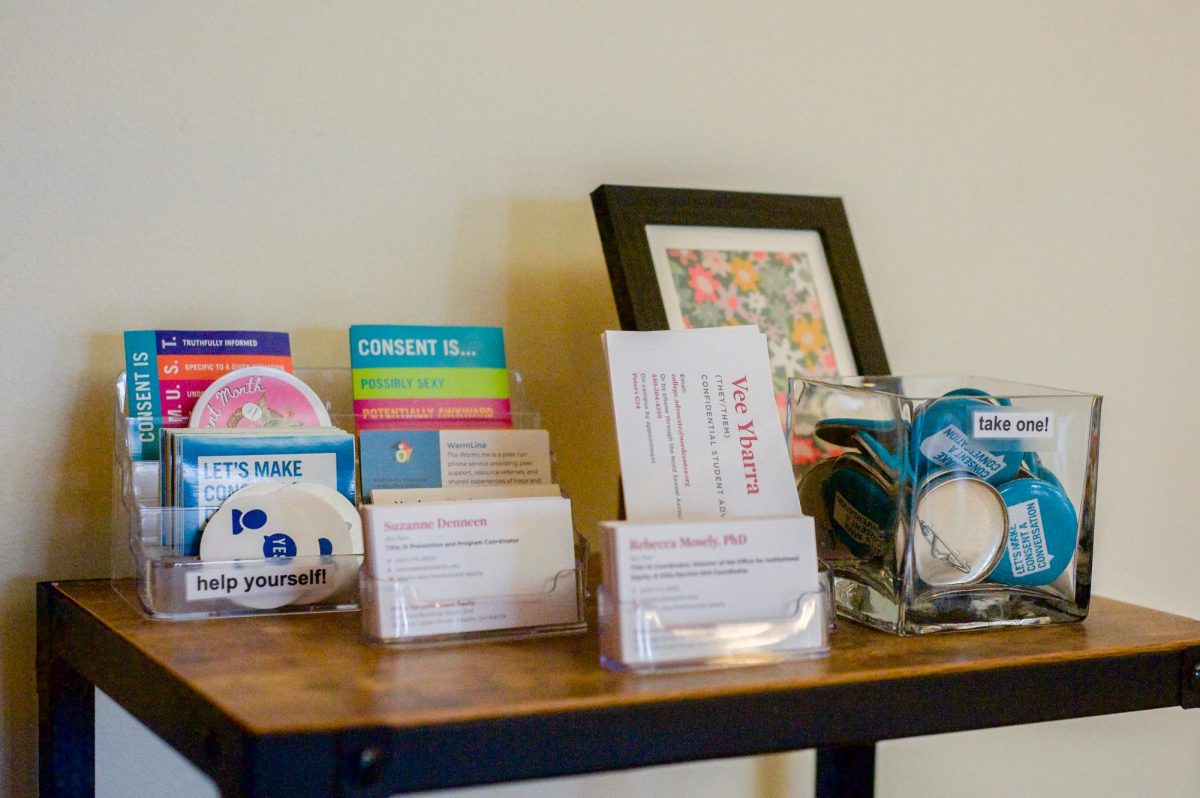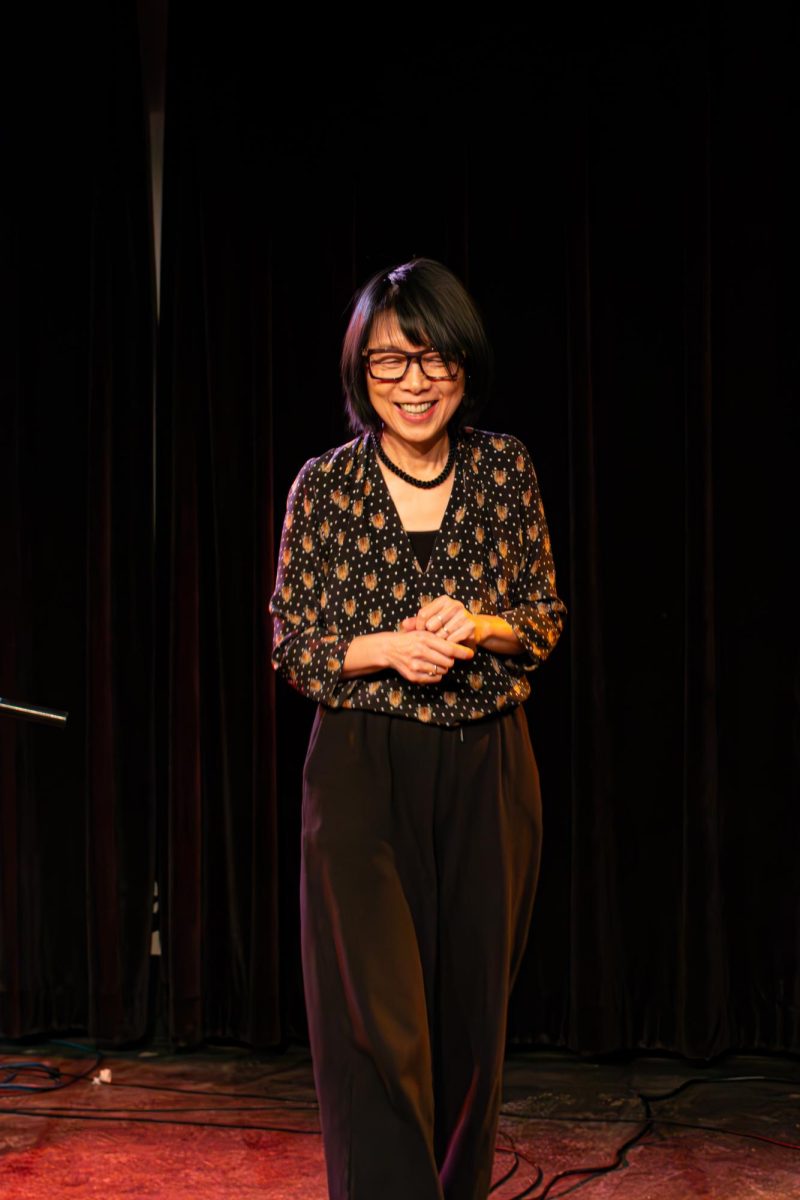Off the Cuff: Sonia Shah, Investigative Reporter and Science Journalist
Sonia Shah, science journalist and author of Pandemic: Tracking Contagions from Cholera to Ebola and Beyond
October 30, 2015
Sonia Shah, OC ’90, is the author of several books, including The Body Hunters: Testing New Drugs on the World’s Poorest Patients, a 2006 exposé on how the pharmaceutical industry uses patients from developing countries to conduct clinical trials. Shah’s journalism has been published in The Wall Street Journal, Scientific American, The Los Angeles Times and elsewhere. Her new book, Pandemic: Tracking Contagions, from Cholera to Ebola and Beyond, will come out in February. The Review sat down with Shah on Tuesday before she spoke at Finney Chapel as part of the convocation series on Tuesday night.
In your opinion, how prepared are we for the next pandemic?
Not very prepared. I think our response is reactive. Epidemics grow exponentially, and the way our current system works, we only start trying to control them after that exponential growth has already started. So we only notice that these disease outbreaks are happening after a lot of people get sick and die. And because they grow exponentially, that’s too late. So with early detection, we can actually push that earlier and save a lot of lives. We could even get to a point where we could squelch these outbreaks before they even start to spread. And that’s sort of what my whole book is about: How do we get there? And the answer to that question is very large. You have to look at what are all the underlying drivers that allow pathogens to become pandemics.
During the Ebola crisis, a lot of countries chose or seriously considered choosing to close their borders or limit their exposure to Ebola instead of sending aid. To what extent is this responding to
a political collective action problem versus just a public health issue?
The Ebola outbreak was illustrative of so many final errors. There actually was evidence that Ebola was in West Africa maybe 10 or 15 years before the outbreak happened, and it was people who were studying related but different diseases who were looking at blood samples and saw that, “Oh my god, all these people have antibodies to Ebola, which means that they had been exposed.” But that never rose to prominence in the way that it should have, and it was partially because that whole area had been devastated by 10 years of warfare. So they didn’t have any kind of health care infrastructure there anymore.
Ebola actually is really simple to control if you get it at the beginning, if you isolate each case and don’t rupture their connection to other people — isolate them when they’re sick and when they’re dead, that’s the only time that they’re infectious to other people. There’s no carriers that we know. You only get infected if you touch the bodily fluids of someone who’s sick and dying. So you isolate the sick and the dying, which is something that’s routine in other countries like here; when do you ever touch the fluids of someone who’s sick? That hardly ever happens because you isolate them. So if you had had those facilities on the ground in those places at the time, it wouldn’t have even needed anything fancy or technically difficult or expensive to control that outbreak. It could’ve been controlled right at the beginning, but we didn’t recognize the early warnings that it was there. Then when the first cases emerged, it took weeks before the public health authorities recognized it. Doctors Without Borders was on the ground and saying, “We’re seeing Ebola cases,” and the medical establishment basically was saying, “We don’t have Ebola in West Africa. Therefore, you have not seen Ebola. It must be something else, since that doesn’t fit our definition.”
So it took a lot longer, and because these things grow exponentially, by the time we started to try to ring this fire, there had already been so many independent chains of transmission that it was just out of control. And it’s still going on to this day. Literally, this epidemic’s not over. I don’t know if that gets to your underlying question, but I just think that it’s a combination of all these different factors: political failures, social failures, neglect — all these failures to recognize evidence when it should have come to our attention.
Does the Ebola outbreak qualify as a pandemic?
It doesn’t. A pandemic is an outbreak of a disease that starts in one part of the world and spreads like a wave across populations and continents, and in terms of how far it has to spread, there’s no technical definition of that. But Ebola was localized in West Africa. There were maybe six other countries that had a few cases, a handful, no more than five or six. So no, but it was a big epidemic.
What made you want to be a journalist?
The Oberlin Review, actually. I’m not kidding. I started here as a pre-med student freshman year because both my parents were doctors. Got stymied with organic chemistry and loved philosophy, loved neuroscience. I started working at the paper because I wanted to do something extra while I was here, and that was the only thing that seemed neutral and honorable at the same time to me. I think it just fit my temperament because I started off as a reporter, then I became News editor, then became Managing editor, then I was Editor-in-Chief when I left. And literally probably the majority of my time, junior and senior year for sure, was working on the paper, and it just really clicked for me. And I think part of it is being a shy person. I’m a shy person, that’s temperamentally, but I’m also really curious and being a journalist is sort of that perfect combination that you can just go up to random people and ask them lots of questions, and it gives you an excuse for doing that.
So it was the Review, absolutely. It gave me such a great training ground because we did everything, which I’m sure you guys still do. We were training reporters, learning it on the job, we did all the layout, we did all the design, the assignments — everything. And that was just really inspiring.
How did the childhood experience of routinely visiting your family in India while growing up in New York City influence your work as a journalist?
I think that was a really critical part of being curious about inequity, because it’s just an obvious fact when you visit a place like Bombay in the 1970s when you have kids living on the street right outside our building. And I was just a little kid when I saw that — 7 or 8 — and there’s little kids having their bath and eating their dinner on the sidewalk, and I didn’t understand why. And my parents would tell me things like, “Well, you know, they’re there because they’re poor.” Well, OK, then why are they poor? “Well, it’s because their parents don’t have good jobs.” I’d say, why don’t they have good jobs? “Well, because they didn’t get a good education.” Why didn’t they get a good education? “Well, because they’re poor.” Wait a second, that goes around in a circle! And I don’t think anyone has ever been able to explain it to me properly. I don’t think we really have come fully to terms with the fact that this very tiny percentage of the human population owns this huge percentage of the world’s resources and the long historical processes that made that happen that way. It’s still something I’m trying to unravel, and I think those early experiences really started me thinking about that.


